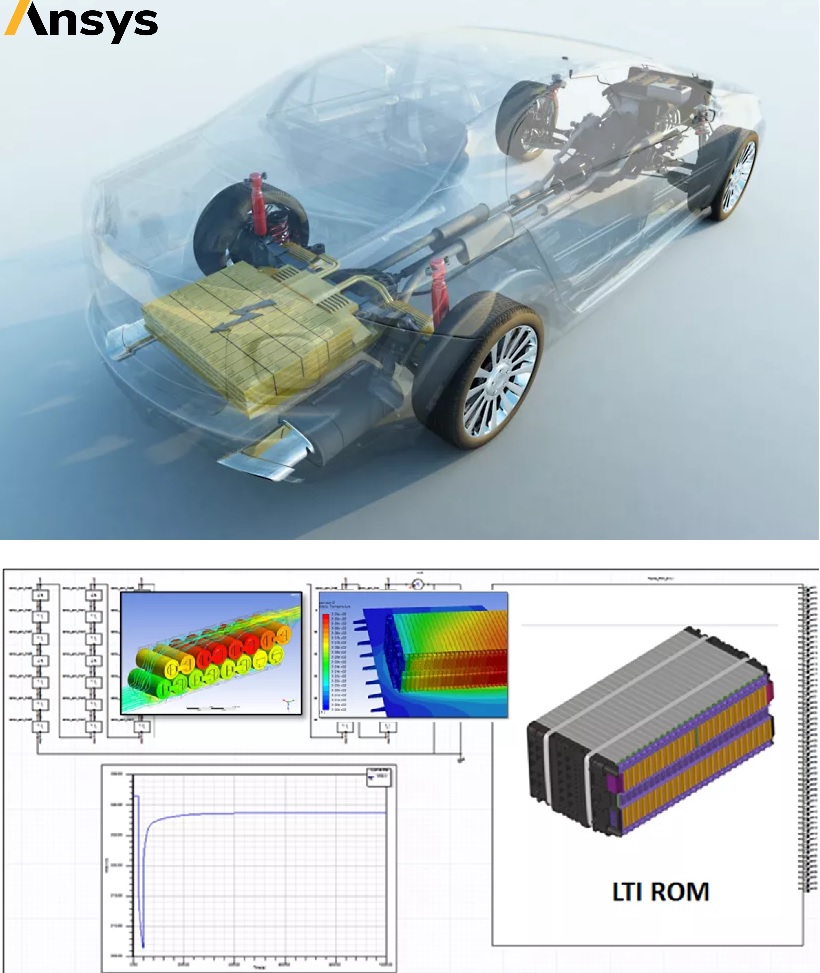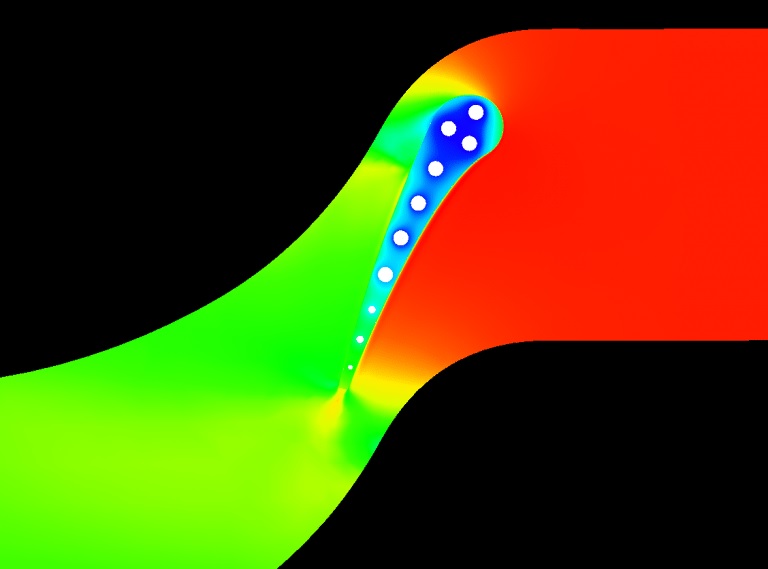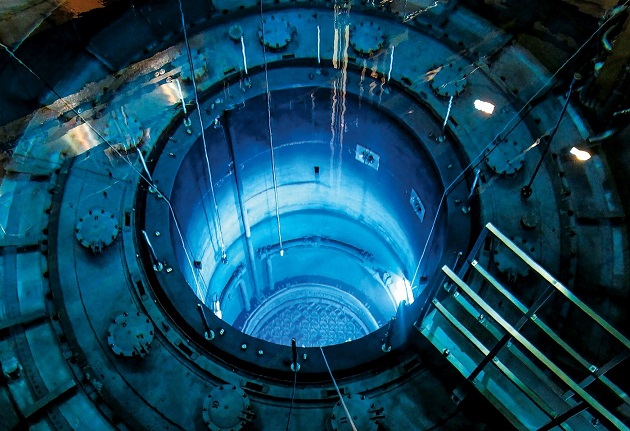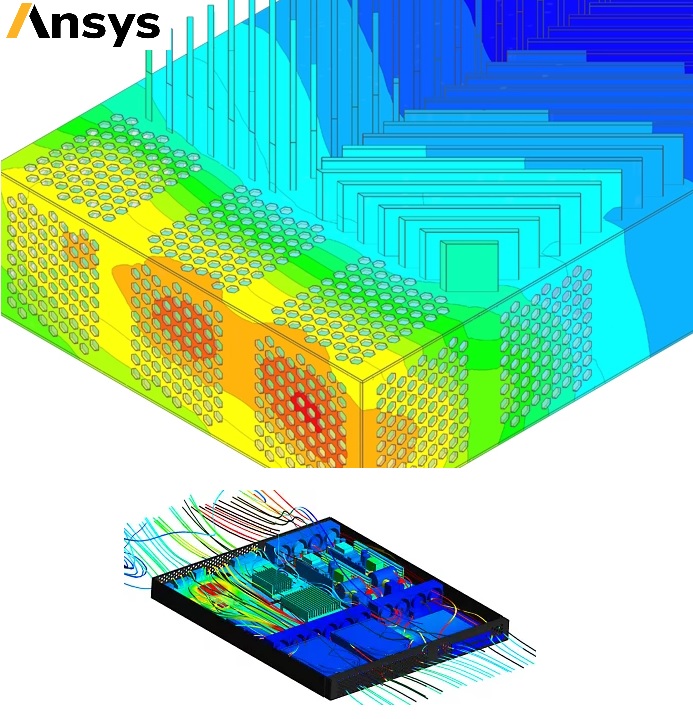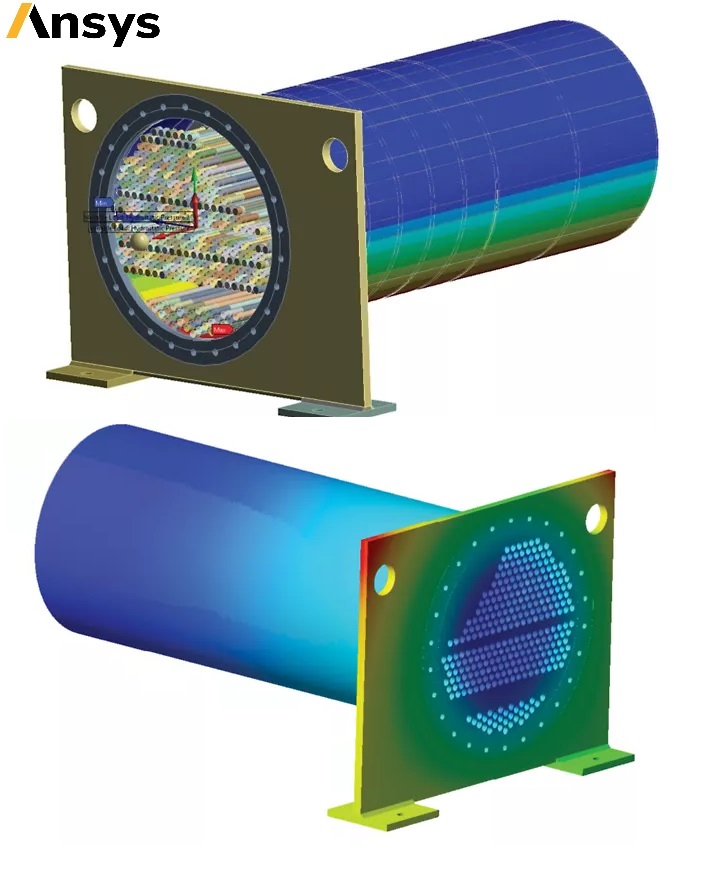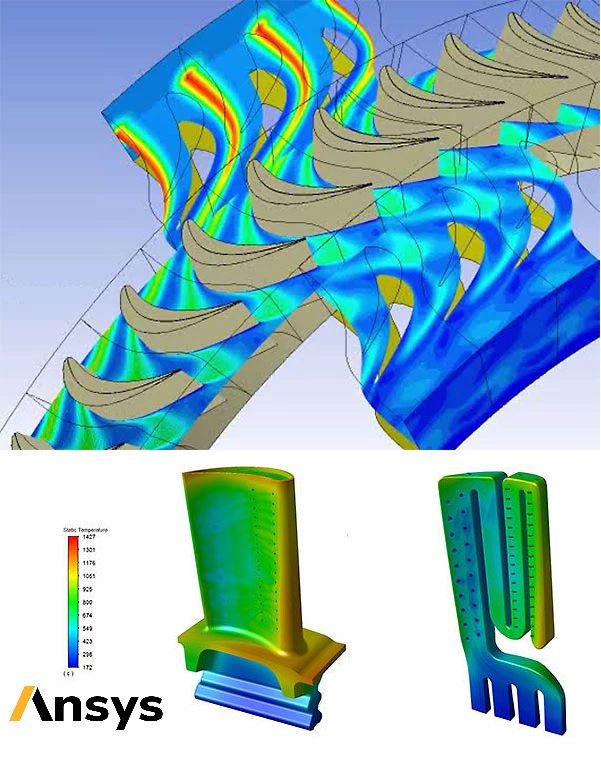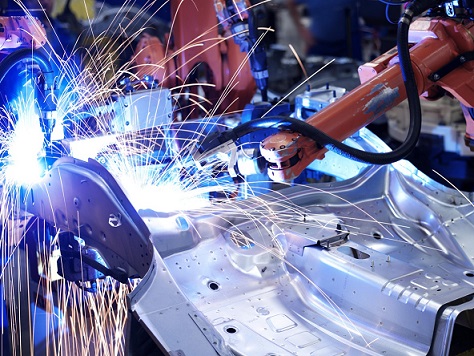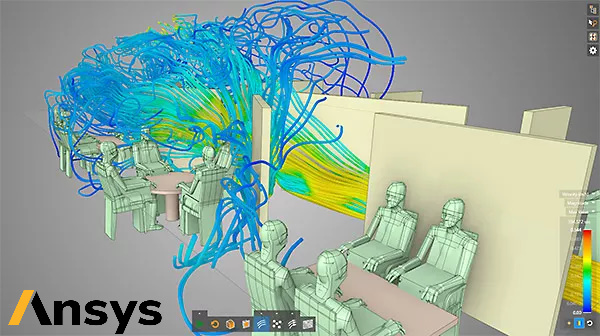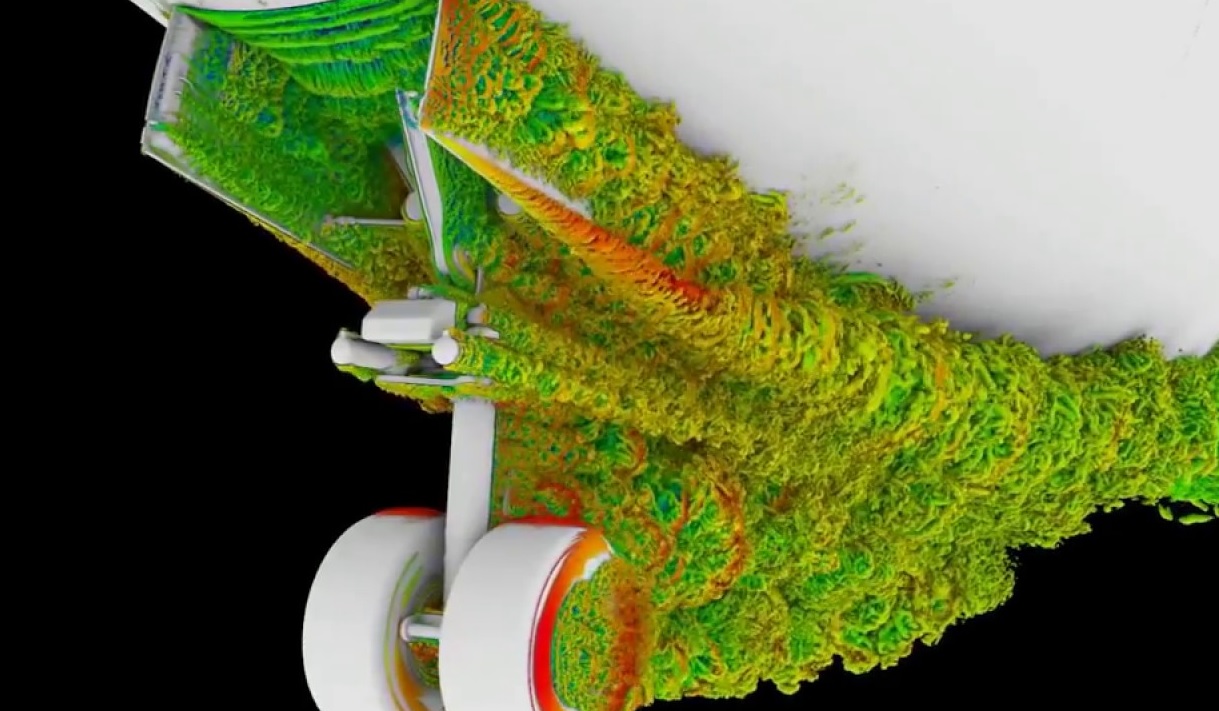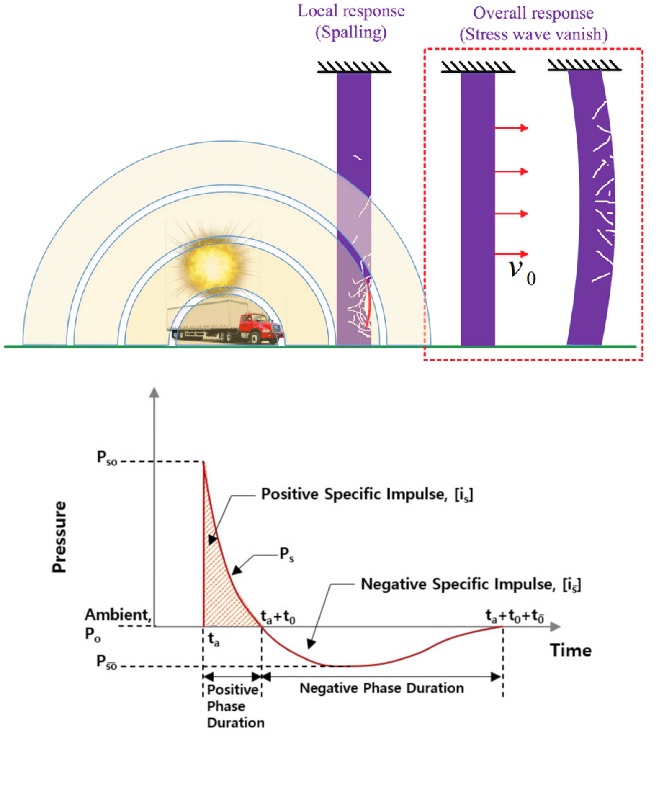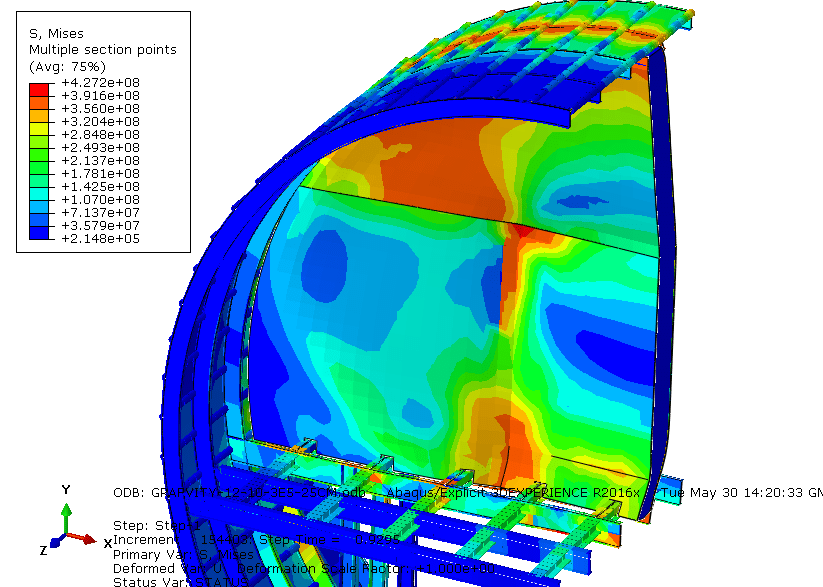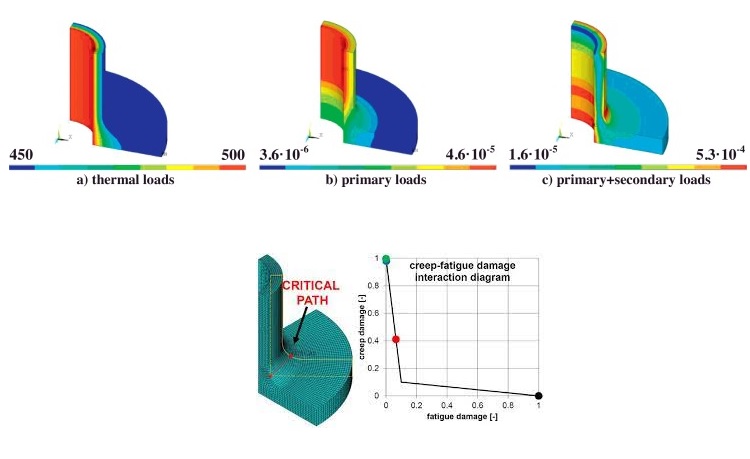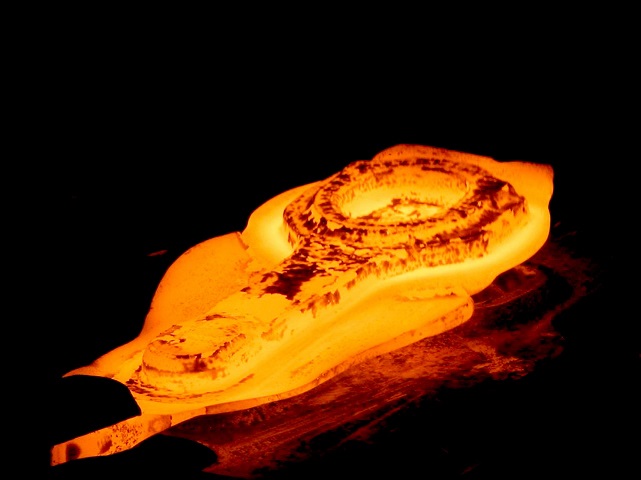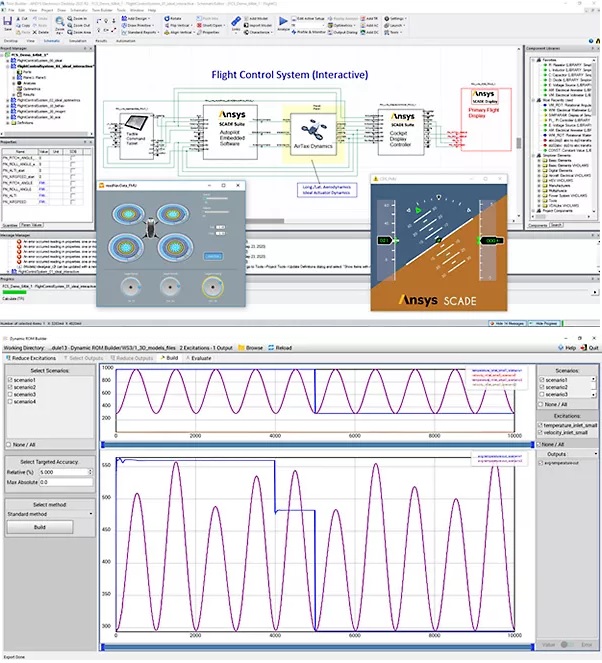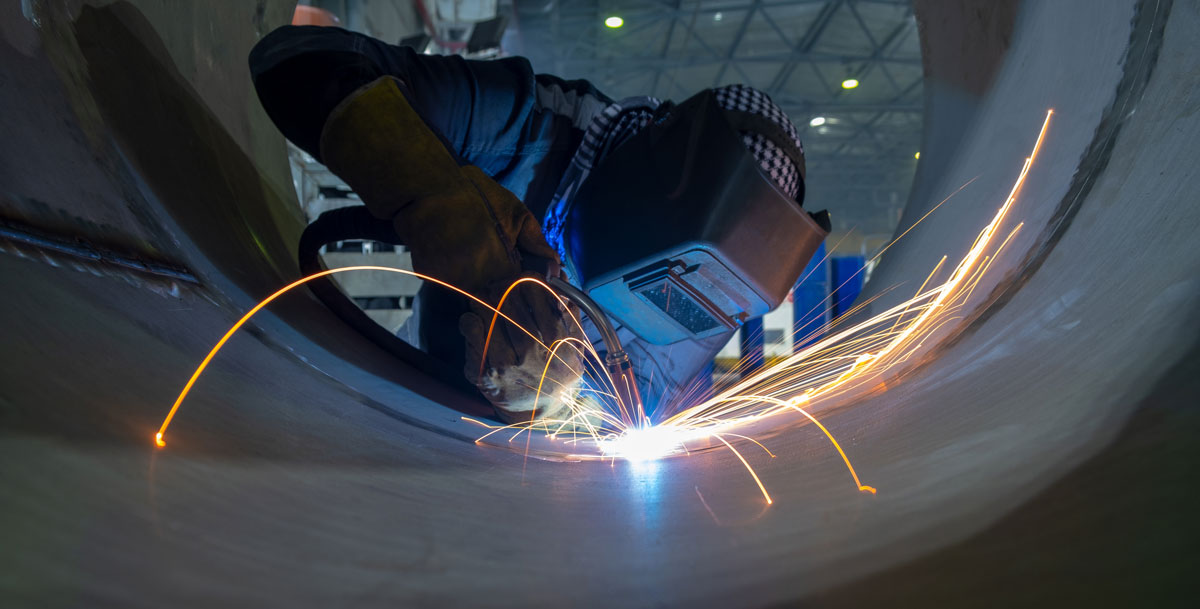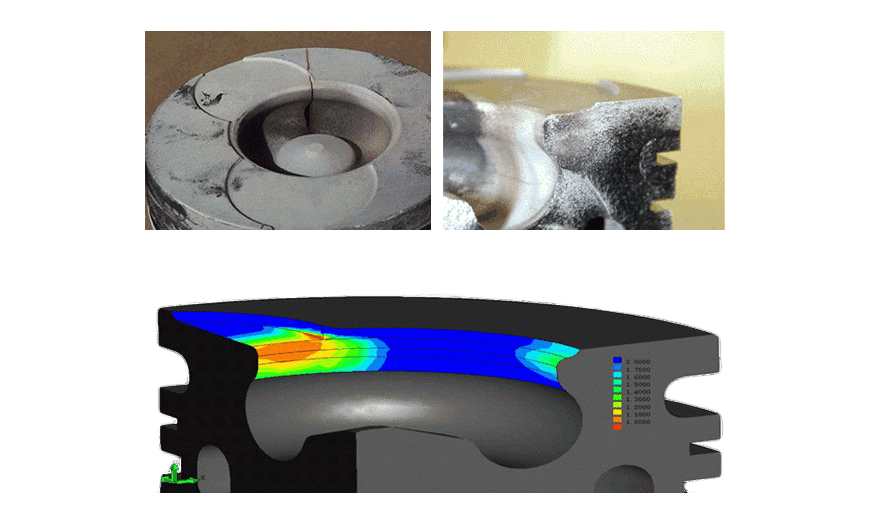Thermal expansion is a common phenomenon that can lead to high levels of thermal stress, which can have both positive and negative effects on the performance of components and structures.
In some cases, thermal expansion can be beneficial, such as in shrink fit and bimetallic temperature sensor applications, where thermal stress can be used to improve the fit and accuracy of the components. However, in other cases, thermal stress can be detrimental to the performance and lifespan of components and structures, leading to deformation, cracking, or failure.
To optimize the effect of thermal expansion and minimize the risk of thermal stress-induced failure, it is essential to have a good thermal design that accounts for the thermal properties and behavior of the materials used in the components or structures.
By using advanced thermal design techniques and multiphysics coupling methods with CFD and FEA, our engineers can optimize the design of components and structures to minimize the effect of thermal expansion and reduce the risk of thermal stress-induced failure.
